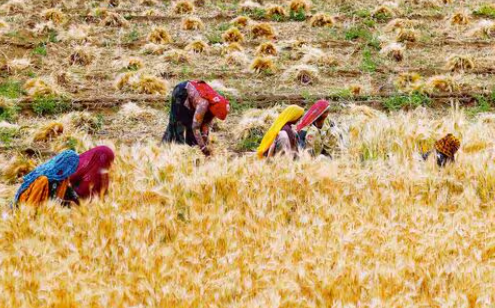Nano DAP Experiment Reveals Decline in Wheat Yields
Scientists at Punjab Agricultural University (PAU) did a study to see how well nano diammonium phosphate (DAP) works compared to traditional nitrogen fertilizers. They found that nano DAP may not be as good, especially when it comes to growing wheat. This brings up concerns similar to those raised earlier about another nano fertilizer called nano urea.
Key Findings of the Study
- Wheat Yield Decline: The study showed that when farmers used nano DAP instead of regular DAP, the wheat grain yield decreased by 16.1%. This happened when only two sprays of nano DAP were used, without adding the usual amount of phosphorus from traditional DAP.
- Plant Growth Affected: The study also found that plants didn’t grow as tall when nano DAP was used. The average plant height was 78.63 cm with nano DAP, slightly shorter than the 79.53 cm height with traditional DAP.
Composition of Nano DAP
The government says that nano DAP contains 8% nitrogen and 16% phosphorus. They promote it as a replacement for a 50 kg bag of traditional DAP. However, the study showed that using nano DAP did not provide the same benefits as traditional DAP.
Research Methodology
The scientists tested different ways of using fertilizers:
- Using only traditional DAP
- Using only nano DAP
Combining traditional DAP with nano DAP (like using 50% or 75% of the recommended dose of traditional DAP along with one or two sprays of nano DAP)
Nutrient Uptake Comparison
Plants took up fewer nutrients when only nano DAP was used.
- With two sprays of nano DAP, the plants absorbed 17.58 kg/ha of nitrogen and phosphorus.
- With traditional DAP, plants absorbed 26.60 kg/ha of these nutrients.
What Is the Government’s Fertilizer Strategy?
DAP is the second most used fertilizer in India, after urea. The government wants to:
- Reduce the amount of fertilizer India imports
- Lower the cost of fertilizer subsidies
- Promote the efficient use of fertilizers
India uses about 10-12.5 million tonnes of DAP each year, but local production can’t meet all the demand.
The effectiveness of nano DAP and similar nano fertilizers is still unclear. The study raises doubts about whether these products can truly support sustainable agriculture and food security. More research is needed to fully understand their impact on crop growth and soil health.
Month: Current Affairs - August, 2024
Category: India Nation & States Current Affairs








